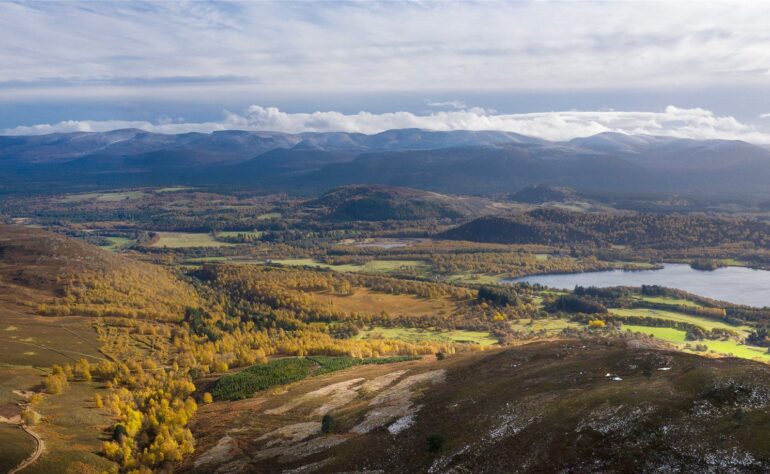Across society people are stepping up to embrace the opportunity for change and the UK’s uplands are no exception to this trend. A shared vision among the private and public sectors, local communities, and environmental organisations is emerging, focusing on revitalising these iconic landscapes to bring about benefits for both society and the environment. This is based on an understanding that action for nature and climate resilience is intertwined with rejuvenating our communities and the economy.
An illustrative case of this collective effort is the water industry’s increasingly bold stance on restoring upland catchments, responsible for supplying 70% of the UK’s drinking water. United Utilities, England’s largest corporate landowner, exemplified this shift by committing in 2023 to phase out leasing its water catchments in the north-west for grouse shooting. This year marks the company’s next step as it reviews the best approach for implementing this policy.
As the anticipation for the upcoming general election grows, there is a golden opportunity for the UK to lead in nature restoration, climate protection, and the establishment of a green economy. Whether it’s supporting the growing ecosystem services market for peatland restoration, woodland creation, and grassland regeneration or taking a firmer stance against wildlife persecution and the burning of peat moors, the potential for a more environmentally conscious government is on the horizon. Citizens across the nation are eager to cast their votes for a government committed to environmental protection.
It is also essential to seize the moment to reevaluate the effectiveness of designated landscapes, like Sites of Special Scientific Interest (SSSIs), in safeguarding the UK’s most sensitive nature sites. While these designations have good intentions, concerns are mounting that they may not be delivering the anticipated results for wildlife and habitats. In 2023, Natural England expressed worry that only 38% of SSSIs are in favourable condition, indicating minimal improvement in recent years. A critical examination of these designations is necessary to breathe life back into them, ensuring tangible outcomes for nature and our landscapes rather than symbolic paper protections.
As we step into 2024, the collective commitment to restoring the UK’s upland landscapes for the benefit of nature, climate, and people is heartening. The undeniable momentum calls for us to embrace the opportunities this year presents and work collaboratively to unlock the full potential of the uplands. Together, we can make a lasting impact on the well-being of our environment and deliver public benefit.
Unlocking nature’s potential: a year of opportunity for upland restoration in 2024
